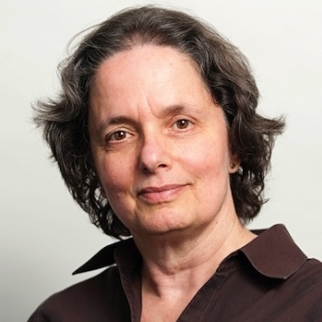“I am a mother of five, and I am pregnant. I didn’t plan this pregnancy, and I am very tired,” Suad Abu Siam, a 35-year-old Bedouin told a group of American women last month. “It energizes me to get out of my reality.”
We’d come to Tel Aviv on a mission organized by the Jewish National Fund to learn about our counterparts in Israel — women of all backgrounds. We came to hear their stories and find out what we have in common. And what we don’t.
Sitting in a nondescript hotel conference room, Abu Siam and five others described challenges faced as Israeli women. Among them, no one seemed both more foreign and yet more immediate than Abu Siam, who appeared dressed in colorful Muslim garb sparkling with jewelry, covered from head to toe so that only her beautiful and expressive face was visible. She appeared alternately angry and sad, fierce and broken, and as we heard her story — translated from Hebrew by our group leader — the reasons for her emotions became both understandable and unfathomable.
Abu Siam was raised among 13 brothers and sisters. She said she’d learned from her father that she should not be limited by the difficulties of Bedouin life — the poverty and restrictions in education and freedom placed on women.
So despite being married at 16, she set out to be an emissary for women’s rights in her village of Lakiya in the Negev and to attempt to help empower other Bedouin women. Abu Siam said that despite her responsibilities as a mother, she had “aspirations” for her life and a desire to study and to “build myself.” She also said that she loves her husband and her family very much.
In response to Abu Siam’s work, her husband took a second wife.
Abu Siam is not divorced, and she is carrying her husband’s child. While polygamy is technically against the law in Israel, Muslim society allows up to four wives, and multiple marriages often exist within the Muslim community.
Her husband’s action was, she said, a “crisis” for her and her children, who were already challenged by learning disabilities and who felt ostracized and abandoned.
Yet Abu Siam said she has found solace through identifying with other women. She has taken it upon herself to organize forums for Bedouin women to continue to empower them.
“My children gave me power,” she said. “All of a sudden, I felt I am OK without him. My children are back on their way now, having success in school.”
Her voice low, her face determined, she spoke across what seemed like centuries of distance between her culture and ours. And yet her solution to her problems seemed both simple and hauntingly profound: “I would like to emphasize I teach my children to educate themselves. The reality speaks for itself; I don’t need to make an effort to teach them.”
::::::::::::::::::::::::::::::::
Did you enjoy this article?
You'll love our roundtable.
Editor's Picks



What Ever Happened to the LA Times?

Who Are the Jews On Joe Biden’s Cabinet?


No Labels: The Group Fighting for the Political Center
Latest Articles

Jewish Students Are Paying the Price of Columbia’s Failures


Passover Goodies












 More news and opinions than at a Shabbat dinner, right in your inbox.
More news and opinions than at a Shabbat dinner, right in your inbox.